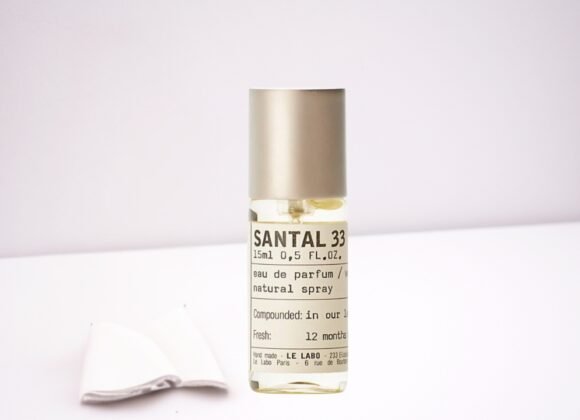Dark marks and scars on the face can be a source of frustration and self-consciousness for many individuals. Whether they’re the result of acne, injury, or other skin conditions, these blemishes can impact our confidence and how we present ourselves to the world. The good news is that with advancements in skin care and dermatological treatments, there are now more options than ever to address these concerns.
In this comprehensive guide, we’ll explore various approaches to removing black marks on the face, treating facial scars, and diminishing pimple marks. We’ll delve into topical treatments, including ointments for face scars, as well as professional treatments like facials designed to target scarring. Our goal is to provide you with a range of options, from at-home remedies to medical interventions, so you can make informed decisions about your skincare journey.
Removal of Black Marks on Face
Black marks on the face, often referred to as hyperpigmentation, can be caused by various factors, including sun damage, hormonal changes, and inflammation. Here are some effective methods to address these concerns:
- Topical treatments: Over-the-counter products containing ingredients like hydroquinone, kojic acid, or vitamin C can help lighten dark spots. These work by inhibiting melanin production or promoting cell turnover.
- Chemical peels: Professional-grade chemical peels can help exfoliate the skin and reduce the appearance of dark marks. Options range from mild glycolic acid peels to stronger TCA peels.
- Microdermabrasion: This treatment uses fine crystals to gently exfoliate the skin, removing dead cells and promoting new cell growth, which can help fade dark marks over time.
- Laser therapy: Treatments like IPL (Intense Pulsed Light) or fractional laser resurfacing can target pigmented areas without damaging surrounding tissue.
- Natural remedies: Some people find success with natural ingredients like lemon juice, aloe vera, or turmeric. While these may be gentler, results can vary and may take longer to appear.
Facial Scars
Facial scars can result from acne, injuries, or surgeries. The treatment approach often depends on the type and severity of the scar:
- Topical treatments: Silicone-based gels or sheets can help improve the appearance of raised scars. For atrophic (indented) scars, retinoids may help stimulate collagen production.
- Microneedling: This procedure creates tiny punctures in the skin, stimulating collagen production and potentially improving scar appearance.
- Dermal fillers: For depressed scars, dermal fillers can be injected to raise the scar to the level of surrounding skin.
- Laser therapy: Fractional laser treatments can help improve both the texture and color of scars.
- Surgical Revision: For severe scars, a dermatologist or plastic surgeon might recommend surgical revision to improve the scar’s appearance.
Ointment for Face Scars
Several ointments and creams are available for treating face scars:
- Mederma: This popular over-the-counter option contains allantoin, which may help improve the appearance of scars.
- Silicone-based gels: Products like Kelo-cote or ScarAway use silicone to hydrate the scar tissue and potentially reduce its appearance.
- Vitamin E oil: Some people find that applying vitamin E oil to scars helps improve their appearance, though scientific evidence is mixed.
- Prescription retinoids: Tretinoin or other prescription-strength retinoids can help improve the appearance of acne scars by promoting cell turnover.
- Hydroquinone creams: For scars with associated hyperpigmentation, hydroquinone can help lighten the darkened areas.
Face Pimple Marks Treatment
Pimple marks, or post-inflammatory hyperpigmentation, can be stubborn but are often treatable:
- Alpha hydroxy acids (AHAs): Products containing glycolic or lactic acid can help exfoliate the skin and fade marks.
- Niacinamide: This form of vitamin B3 can help reduce inflammation and fade dark spots.
- Vitamin C serums: A potent antioxidant, vitamin C can help brighten the skin and fade dark marks.
- Hydroquinone: This powerful lightening agent can be effective but should be used under professional guidance.
- Azelaic acid: This ingredient can help fade dark marks while also treating active acne.
Best Facials for Scarring
Professional facial treatments can be highly effective for addressing scarring:
- Microneedling facial: This treatment creates controlled micro-injuries to stimulate collagen production.
- Chemical peel facial: Different strengths of peels can be used to address various types of scarring.
- LED light therapy facial: Red and blue light treatments can help reduce inflammation and promote healing.
- Oxygen facial: This treatment infuses the skin with oxygen and nutrients, potentially helping to improve scar appearance.
- Hydrafacial with boosters: This multi-step treatment can be customized with specific serums to target scarring.
Conclusion
Dealing with dark marks and scars on the face can be challenging, but there are numerous effective treatments available. From topical ointments and natural remedies to professional treatments like chemical peels and laser therapy, the options are diverse. The key is to be patient and consistent with your chosen treatment, as results often take time to become visible. Remember to always protect your skin from sun damage, as UV exposure can worsen hyperpigmentation and scarring.
If over-the-counter treatments aren’t yielding the desired results, don’t hesitate to consult a dermatologist for personalized advice and potentially more aggressive treatment options. With the right approach and professional guidance, you can work towards achieving clearer, more even-toned skin and boosting your confidence.






